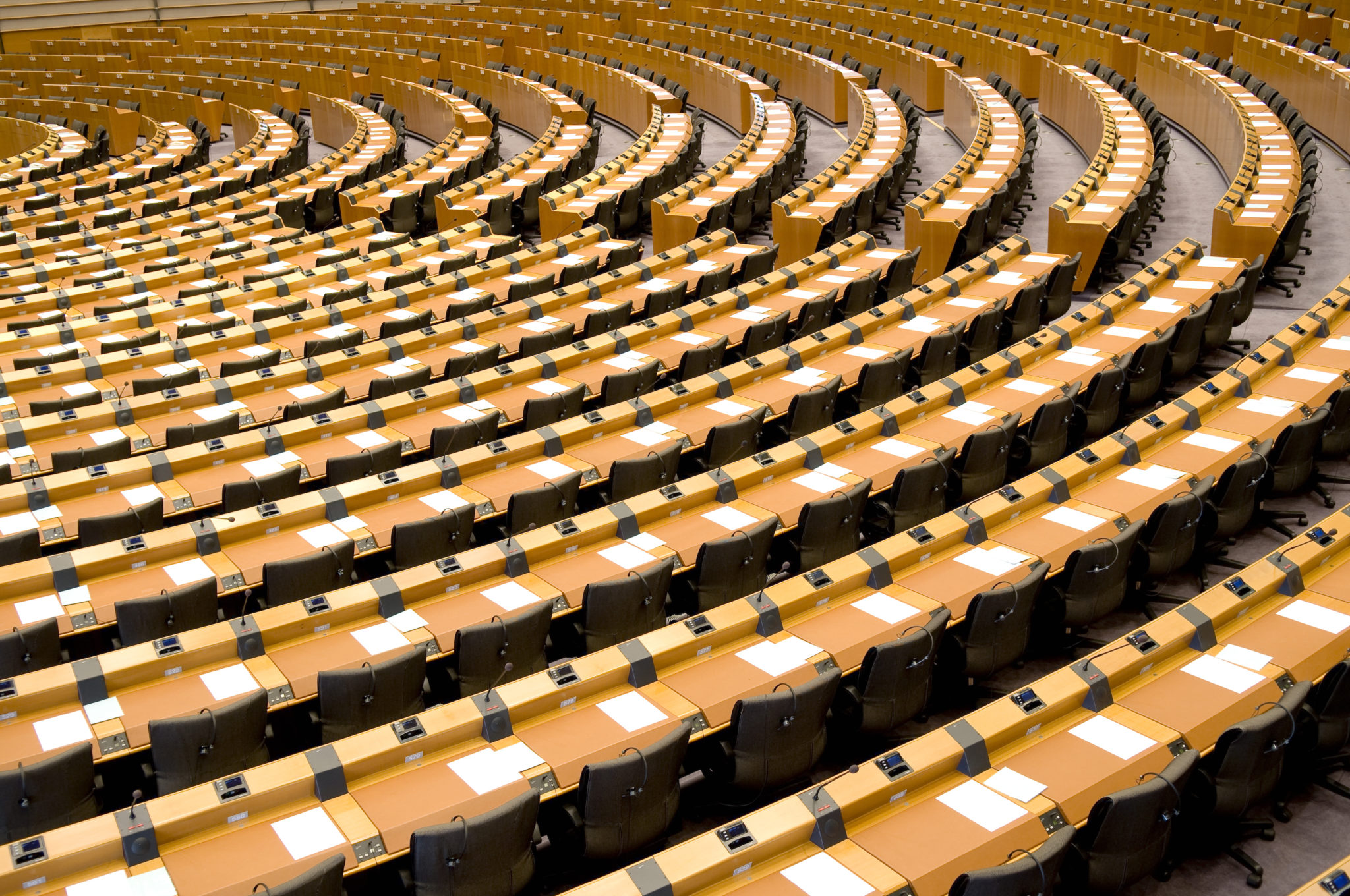Half-time analysis: what's next for the European Super League?
Published on 22nd February 2022
The 'superleaguers' and UEFA and FIFA's legal clash hinges on an EU court ruling that could shape the future of the European game

In April 2021, 12 of the most powerful European football clubs announced the creation of a breakaway European Super League (ESL) in a bid to revolutionise modern football. However, the announcement was met with fierce opposition from fans, rival football teams and football's main governing bodies, which resulted in nine clubs dropping out of the controversial tournament within less than 72 hours of its creation. Despite that early yellow card from the football community, Real Madrid, Juventus and FC Barcelona are still standing by their project and are not looking to forfeit this particular game without taking it to full-time.
Spanish court is supportive of the ESL
In May 2021, the Madrid Commercial Court asked the Court of Justice of the EU (CJEU) for a preliminary ruling on whether the International Federation of Association Football (FIFA) and Union of European Football Associations (UEFA) had breached competition law rules by prohibiting the creation of the ESL, as well as whether those associations had the power to require prior authorisation for the organisation of alternative competitions. In the meantime, the dispute that could change modern football as we know it and the competition for top-tier football has continued as a range of bodies express their views on the legality of the idea.
In July 2021, the ESL received backing from the Madrid Commercial Court in their dispute against UEFA's decision to bring disciplinary proceedings against the named Spanish and Italian teams for a potential violation of its legal framework. In the court's decision, the judge, Manuel Ruiz de Lara, warned that UEFA’s actions were a “flagrant breach” of the cautionary measures established in the previous injunction which the respondents have violated.
Under the threat of imposing fines, UEFA was ordered to abandon its attempt to ban Real, Barcelona and Juventus from participating in its competitions, as well as to annul the fines it had imposed on the clubs, including a 5% reduction of incomes and a €15 million contribution to UEFA's solidarity fund. Most importantly for the "superleaguers", the judge also rejected UEFA’s obligation on the clubs to dismantle the ESL.
Following the Madrid Commercial Court's ruling, UEFA announced that the clubs would not face disciplinary action for their part in founding the ill-fated ESL. However, this did not prevent the UEFA Appeals Body, in September 2021, declaring the court's proceedings "null and void, as if the proceedings had never been opened". At the same time, it also announced its intention to appeal the ruling of Madrid Commercial Court to Madrid’s Audiencia Provincial, saying that it did not recognise the court's jurisdiction. UEFA also filed a motion for the judge de Lara to recuse himself over alleged “significant irregularities” in the proceedings.
European institutions do not appear as ESL's fans
Over the past few months, the matter has also been attracting significantly more attention at the highest levels of the EU. At the end of November 2021, sport ministers from all EU Member States expressed their views on the breakaway competition during their meeting within the EU's Council on Education, Youth, Culture and Sport, adopting a resolution setting out details of the European Sport Model. They stressed the anticompetitive consequences that a "closed sport competitions could have on organised sport in Europe, such as fundamental change in the sport qualifying processes usually based on sporting merit". The ministers addressed their joint statement to sports organisations, calling on them to "ensure the organisation of top-level and professional sports competitions in compliance with the principle of openness in sporting competitions, giving priority to sporting merit".
The resolution came as a blow to the ESL, as it undermines its flagship proposal in which, as originally envisaged, 75% of the new league would be reserved for the founding teams on a permanent basis, with the remaining 25% allocated yearly via a qualification route. In response to the ministers' resolution, UEFA's president, Aleksander Čeferin, welcomed the development and praised the "landmark statement" backing "our European sport model", adding that it underlined the body's rejection of closed competitions "like the attempted Super League".
The significance of the ministerial resolution certainly cannot be overlooked and is regarded as having already had an adverse impact on the ESL's plans. In response to the ministers' resolution, the ESL announced that it had abandoned its plans for a closed model, stating that it "understands that fans and authorities alike want an open competition and a functioning sporting pyramid". At the same time, the ESL attacked UEFA for being anticompetitive, pointing out that UEFA remains "the sole regulator, operator and promoter of European club football, which infringes on the very principles of the EU and its competition policy”.
UEFA and FIFA's case has also been strengthened by the European Commission. In its opinion, recently submitted to the CJEU, the Commission argued that European football’s governing body could justify blocking a rival league on the basis that it threatens the game’s sporting model, at the same time underlying the importance of sporting merit in football and the game’s existing pyramid structure. Although the Commission only has an advisory role in these proceedings, its view as the EU’s top antitrust enforcer is likely to be influential on the approach to that issue. On the other hand, the Commission stressed the importance of having clear and transparent rules setting out the basis on which football's governing bodies would prohibit clubs and players from participating in rival leagues – rule that do not presently exist.
Legal battle at Europe's top court
Notwithstanding these developments, it remains the case – as we reported in our previous OC Insight – that the ESL's Spanish competition law dispute with FIFA and UEFA has been referred to the CJEU. The main question that the EU's top court will have to answer is whether the provisions in FIFA's and UEFA's statutes that purport to grant them the exclusive rights to allow new football competitions infringe EU competition rules, bearing in mind the size and importance of the market (which accounts for 1 per cent of the block's entire GDP).
According to the court filings, A22, a Spain-based company representing the ESL, has asked the CJEU whether UEFA can continue to act as a football regulator able to place sanctions on clubs while at the same time acting as a participant, profiting from organising tournaments such as the annual Champions League contest. The ESL accuses the governing bodies of abusing their dominant position by "keeping and fiercely defending a monopolistic position in European football that goes against competition law, despite efforts from other operators to access the market".
The ESL could indeed argue that the very nature of a new European competition is pro-competitive, as it introduces a rival tournament to the Champions League. At the moment, there is no real alternative to UEFA's club tournament. By establishing the ESL, competition in the market for top-tier European football would increase (and more clubs would be able to participate overall), while also offering fans more choice in deciding which competition to watch. Moreover, a rival tournament would place substantial competitive pressure on UEFA to improve their own product (which is already criticised by many) and make it a better competition, therefore increasing overall consumer welfare.
For UEFA, the rival league represents the most significant challenge to its model and the sport as a whole. Successful creation of the ESL could result in top clubs turning away from the Champions League, UEFA's most lucrative product, and create a closed shop with the power in the hands of the breakaway clubs. UEFA’s argument has always been that the antitrust breach is not its own, rather that of these clubs who try to protect their own positions and revenues. UEFA argues that its authorisation rules have always been clear and nothing has changed. In its eyes the originally envisaged closed structure of the ESL clashes with the principle of “sporting merit,” which has also been enshrined in UEFA’s rules for decades.
The most recent reports of the ongoing case reveal that FIFA has argued that neither it nor UEFA control the sport and they cannot, therefore, be accused of vetoing new competitions from emerging, while "there is no law that requires [the European Super League] to obtain approval from FIFA or UEFA before establishing its competition". At the same time, FIFA maintains that the clubs had no right to demand that they continue playing in national leagues if they decide to go forward with the breakaway format – a notion that ESL sees as an anticompetitive and unfairly discriminatory attempt to exclude competitors from FIFA’s and UEFA’s competitions.
Osborne Clarke comment
The facts underpinning the football dispute are complex, with both sides appearing to be altering their tactics. The ESL has said that, while the project would originally have guaranteed the founding members a permanent spot without fear of relegation, it now envisaged clubs qualifying on merit. On the other side, UEFA has launched a wide-ranging review on the future of European football.
Subject to the outcome of the CJEU proceedings and UEFA's appeal of the Madrid court's findings to the Provincial Court of Appeal, the door remains open for UEFA to renew disciplinary action against the breakaway in the future. When it finally arrives later this calendar year, the CJEU's preliminary ruling could have a defining impact on FIFA's and UEFA's controlling influence over football and could mark the beginning of the end of their long monopoly over the European game.
For more information about legal aspects surrounding the creation of the ESL, please see our earlier Insights here and here.




